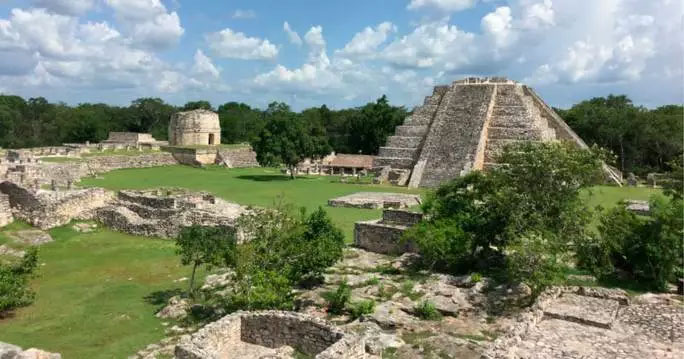According to Science Alert, the results indicate a correlation between increased rainfall and population growth in the Maya civilization’s habitat on the Yucatán Peninsula. Conversely, there are significant signs of population decline and deterioration in living conditions during the years 1400 – 1450 AD, a period closely linked to political collapse.
The cause of the empire’s downfall was simple yet brutal: drought, which led to a severe chain reaction within society.

An abandoned Maya city – (Photo: ANCIENT ORGINS)
According to Ancient Origins, these findings stem from a large-scale study conducted by a team of scientists from the United States, Canada, Mexico, Germany, Australia, and the United Kingdom, led by anthropologist Douglas Kennett from the University of California, Santa Barbara.
What stands out in this research is the discovery of “damaged” skeletons from the later period of the empire. These individuals exhibited severe bodily injuries, indicating that their lives were no longer stable as they had been in earlier times.
The traces found on the skeletons across different periods also provide excellent data on how people of that time ate and their health conditions.
In summary, the skeletal evidence indicates that drought was accompanied by an increase in conflict and violence. It appears that warfare became increasingly common, driven by a severe food insecurity due to insufficient rainfall.
“The impact of rainfall on food production can be closely linked to migration, population decline, warfare, and changes in political power,” the authors wrote in their publication in Nature Communications.
Previous studies have also established a connection between the periods of decline in the empire and adverse weather conditions during the Classic period of the Maya civilization.
For the Maya Empire during the years 1400-1450, the population had reached enormous levels, leading to equivalent massive demands in all aspects of life; thus, the chain reaction of drought reached catastrophic levels.
The result was the complete destruction of once-mighty cities alongside the collapse of agriculture.
The surviving populace migrated to smaller towns to weather the climatic storm. They never had the chance to return and restore the empire, as the Spanish conquered the Yucatán region in the 16th century, extinguishing the last flames of the civilization.
According to researchers, this discovery serves as a warning to the present world, where climate change—primarily caused by human actions—and various other factors are leading to food insecurity in many regions.


















































